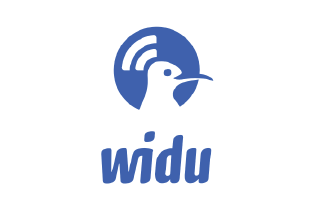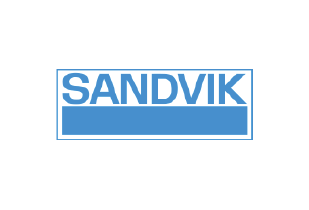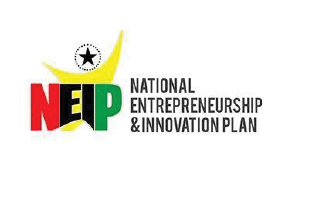Hello you, how’s the Love Month treating you so far? As for me, I’m like ‘valentine? What’s that again?’ haha. My team and I are so engrossed in preparing for our upcoming International Fabulous Women’s Conference, that I won’t be surprised if we miss Val’s day! Speaking of our conference, today’s guest is a facilitator on Day 1 (Women Leaders Workshop on Friday 4th March). He is Dr. Evans Duah and I like to call him Dr. Wealth. Oh and he is the first gentleman I get to interview here. I really hope you enjoy this interview as much as I did.
________________________________________________________________________
Ama Duncan (AD): Welcome Dr. Evans Duah a.k.a Dr. Wealth according to Ama Duncan and the first man to be interviewed here. Congratulations on your new book as well. I love it when I see Africans, especially Ghanaians write books and share our own knowledge so that we can have practical things right here on the continent. So, I’m really excited for you.
Dr. Evans Duah (ED): Thank you so much.
AD: So, for starters, I call you Dr. Wealth because every time I’ve heard you speak, it was something about wealth. How did you end up coming into this space where you’re talking about wealth creation?
ED: I think our story is what in a way drives us. I’ve had the chance to be up there and low. And in these two scenarios, I learned wisdom. I saw daddy being wealthy. But he got sick along the line. Unfortunately, he didn’t do a lot of wealth planning. It was a matter of if daddy doesn’t go to work, nothing is coming in. And because he didn’t put a lot of mechanisms and systems in place, people were stealing from him, his receivables were having issues for recovery, and all that. Finally after some years, one of my brothers had to step in. So I got the chance to experience wealth and I got the chance to experience the other side of the story. After seeing these two sides, I wanted one more than the other. I’ll be honest with you, the harshness of poverty as I always tell people is all evident all around us. We see it, dreams that people have that they are unable to pursue. I’m so sure that a lot of Africans think, and say that because of lack of capital, we are unable to do what we want to do. Because at the end of the day, money becomes a vehicle to help us to fulfill our dreams. I realized that then we need to learn more about how to earn money, so that we will be able to fuel our dreams and ambitions.
AD: I love that. Majority of the women in The Fabulous Woman Network are into business. We also have corporate women who run their own businesses. Based on the experiences you’ve had, please share some key lessons we should focus on when learning how to create wealth so we can apply them.
ED: You have two options here: you can decide to take 25 years to learn the hard way or in 25 minutes. 25 minutes because you can watch a program by Ama Duncan and it will save you a whole lot of problems. No matter what you are going through, others have gone through it already. Therefore, you should be somebody who reads wide and specifically in your areas of interest. People can inform you, but there is nothing like information that is customized to you. For instance, the pastor can preach all that he can, but if you don’t read the Bible yourself, you will only know the God of the pastor. So the first thing is that you need to read and understand things for yourself.
The second is this, as the saying goes; if we can see farther today, then it’s because we stand on the shoulders of some giants. The fact of the matter is that nobody rises or does well in business without an accountable person on the side. Some people call it mentors, board of advisors, experts, consultants, etc. But we don’t want to pay for consultants or advice in our part of our world. So we make people like Ama Duncan’s job so difficult when she could save you from tons and tons of problems. We need to know that wherever we are going, there are some people who have been there before. There are some people with better expertise, experiences, and have made those mistakes. We should listen to them.
Further, if you don’t know where you are going, then any place is a destination. For example, if I head south with the intention of going to Accra from Kumasi without knowing that Accra is in the south, I’ll end up at Wale Wale. And when I get there, I’ll think I’ve arrived because I don’t know what Accra looks like. A lot of people are doing too many things but they have no goals, clear vision or even what they are looking for. Sometimes you may be looking for gold, but you may not have developed the expertise to recognize gold when you see gold. Somebody can give you a rock of gold, which is not refined and you would end up throwing it away because it’s not shiny. That is a real problem with so many people. Opportunities come to them, but they have not learned to actually recognize opportunities. It comes in the form of a rock, like a conversation like this. And then we end up throwing these rocks away because we don’t know what gold looks like. The third most important thing is that we need to define exactly what we want and how we are getting it. If you don’t find it, then any place is a destination. And if you don’t know how you are getting there, you can spend 20 years on something that takes five years. You see, while you are walking somebody is sitting in a car, another in a train, another in a plane and you’re heading to the same place. If you determine what you’re looking for and the how, that is always the best. Now I will end with one most powerful thing that has stuck with me for a very long time. If any man/woman does not know why they do what they do, then I can tell you the little bumps on the road will throw them off balance. Ama, you can be very honest with me; your journey has not been easy for you. It’s been glorious and fulfilling, yes. But there have been times that you were down, broken, times that you wept and felt like ‘am I doing the right thing?’ But then the good testimonies, outcomes, even some awards and recognitions would keep you going. If your “why” is not strong enough, at the least blow, you’ll turn back and go to your comfort zone.
And I’ll end up with this particular thing, which is in my book by the way. I talk about the four pathways to wealth. The first pathway is that there are those we call dreamers; people who are innovative like Ama Duncan. These are people who decide that they want to be entrepreneurs, musicians, artists, influencers, celebrities, etc. It is not actually a linear option, where you work 8-5 and get paid at the end of the month. Sometimes they don’t even know how much they’ll get at the end of the month or year. They can have a bumper harvest one time, and a lean season the next. But these are the people who are actually having a fast lane to wealth. So if you’re a lady reading this today, and you’ve chosen the path of an entrepreneur, you’re a dreamer. It would not be easy. But I can assure you like I said earlier, if your why is so strong, then at the end your bank account will reflect that dream that you have.
There is a second group of people, I call them the corporate climbers. Sometimes, people give us the impression that all of us would have to quit our jobs. I beg to strongly differ. Some of us would have to remain in that 8 to 5 Job. Ama, I saw that you went to moderate an event for Anglogold Ashanti recently. If nobody was working there, would you have gone there? Eventually, some of us have to be the CEOs at Anglogold Ashanti, presidents, finance ministers, etc. We all have to fit into various routes. Some of us may not have to necessarily move into the path of the dreamer but we can rise and become a powerful people too. Today, we can’t compare most entrepreneurs’ earnings to the salaries of the CEOs of Alphabet, Google, Microsoft, Apple, etc. There are some CEOs today, like the governor of the bank of Ghana whose salary, if I’m not wrong, is almost more than four times that of the President of Ghana.
And then there are some people who decide to be what we call the saver investors – the middle class people. If you find yourself in that area, there is nothing wrong with it. It’s like a pyramid, so not all of us would get to the top. In my book, I try to tell every single person, even those at the bottom, that they can have that comfort.
For the last part, we have the connoisseurs, virtuosos or experts who become like the topmost surgeons, lawyers, accountants, etc. You can also become that.
AD: These are gems and golden nuggets right there. I love it and can only imagine what’s in your book!
ED: My book is called Intentional Wealth 2.0: Building Wealth With The Pentagon Wealth Model. It’s in six parts. In Part 1, I acknowledge the fact that we all have what we call the ‘money story’ or “money script”: our own perceptions about money and wealth. That is our intentional wealth 1.0. In Intentional Wealth 2.0, we are presenting our version to you. I use ‘we’ with my book because I feel I owe my book to everybody who’s contributed to the final outcome that I have. All these people who have formed my character, knowledge, perception, and even those who contributed to the book. Also, I differentiate between money and currency, and the fact that money starts as a concept of flow before the concept of stock. Then the book divides itself into what we call the Pentagon Wealth Model. There are five cardinal points. The first one is about wealth creation. Define what wealth means to you. The next stage of wealth creation is where I give equations we can all apply:
· Time
· Value
· Leverage
· Wealth/money velocity
· (For the Fifth one, you’ll have to read the book)
So understand these principles and know how to accelerate your money.
AD: Chai, you truly are a lecturer! How do we get access to your book?
ED: You can find it on Amazon by searching Intentional Wealth 2.0 or on my website www.evansduah.com. We have many distributors as well and they’re available in many bookshops.
AD: Fabulous! Before you go, please complete the following with short phrases:
If I could advise my younger self in one short sentence, I would say “be yourself”.
I am fabulous because “I don’t give up”.
One book that has greatly helped me in business is “The Richest Man in Babylon”.
AD: How do we find you on social media?
ED: On social media across all platforms, I identify as The Duah.
AD: This has been an amazing time with you Dr. Wealth. Thank you and give my regards to your beautiful family.
ED: Thank you so much. It’s been a pleasure and I’m honored to be the first man to be interviewed here.
AD: Welcome!
______________________________________________________________________
My goodness! Those nuggets he shared are so golden. I’m just so grateful to have had this talk with him. I hope you picked some useful bits from it as well. We all need to practice them. Is there anything you’ve learnt here today? Kindly drop them in the comments below or send me an email at hello@amaduncan.com. And don’t forget; Dr. Evans Duah is one of our facilitators for the Women Leaders Workshop on Financial Planning as part of our upcoming International Fabulous Women’s Conference. We look forward to hosting you at Fab Hub Ashanti from 4th March! Hey remember, you’re fabulous beyond measure!
Ama xx
About Dr. Evans Duah
Dr. Evans Duah is a French and English trained business expert. He worked in France and Morocco and currently works in Ghana. He started his Career in Business Management Consultancy and continued as an award-winning professional banker with business and retail banking experience in International Business, Credit Management, Project Management and Corporate Social Responsibility by the Bank Societe Generale before he moved to academia and consultancy. He is currently a lecturer at the newly mandated public University AAMUSTED, in Strategic Management, Entrepreneurship and Finance for first and second degree programmes with the Management department. He is the CEO and Chief Consultant of Expat Business. He consults and plays major roles in many business startups, mergers and acquisitions, fundraising, partnership and collaboration, visibility studies for international companies intending to establish subsidiaries in Ghana or West Africa. His passion for Africa especially the youth inspires him to engage in a number of volunteering works. He runs Duah Mentoring Club 100 programme where yearly he mentors about 100 young people between the ages of 18 – 40 in business. He also served as a keynote speaker and Analyst at different business events for British Council, SME Ashoka Africa, AAMUSTED KNUST IMANI Africa, ASLEM among others in Ghana, Morocco, South Africa and China.













